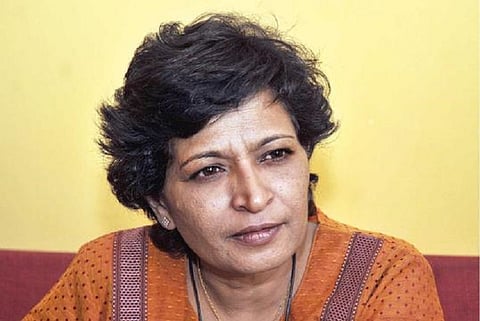

For the longest time since independence, Karnataka was a Congress party fortress. It ruled the state continuously from 1947 to 1983. In November 1989, and after a six-year interregnum when it ceded ground to the Janata Party and its derivative Janata Dal, the party came back to power (winning 178/221) in the state after Hegde’s successor Bommai—the 555-smoking M.N. Royist and radical humanist—was crushed at the polls. The BJP, which had fared disastrously in 1985 because the Lingayats had backed Hegde, doubled its count from two seats to four, polling a modest 4.14 per cent. This time the Veerashaiva–Lingayat voters had moved en masse to the Congress because Veerendra Patil was a Lingayat himself, and the BJP lacked charismatic leaders in the state. The BJP was yet to become the magnet for the Lingayats that it would in later years.
Perhaps illustrative of the political truism that charismatic leaders don’t matter if there is a potent enough issue, the BJP in Karnataka would multiply its seat count in the state assembly ten-fold in 1994— from four seats to forty seats and a 17 per cent vote share—riding on the mandir–masjid conflagration. Although it would not form a government for more than a decade after, the party would never look back. The BJP’s vote share bumped up to 20.69 per cent for forty-four seats in 1999, and in 2004, it won 28.33 per cent votes to become the single-largest party with seventy-nine seats, though not yet able to govern the state on its own. An opportunistic alliance between Congress (sixty-five seats) and Deve Gowda’s Janata Dal (fifty-eight seats) meant the BJP had to wait on the sidelines.
Betrayed in a coalition arrangement and buoyed by divisive issues such as Baba Budan Giri (claiming Hindu rights over a syncretic shrine; described as the party’s Ayodhya in Karnataka), Tipu Jayanti, etc., the BJP smashed past the 30 per cent vote mark in the 2009 Assembly election to win 110 seats—a near majority in an Assembly of 224 seats—and finally formed the government pretty much on its own, with support from a few independents.
It was the first time in India’s history that the BJP was ruling a southern state. It had sailed across the Tungabhadra into the south mainly on the strength of the Veerashaiva–Lingayat vote bank.
But the success did not last long. After providing a ragged, corrupt government for five years, the BJP was routed in the 2014 election and put in its place with just forty seats as its vote share dropped back to 1999 levels—less than 20 per cent. The state slipped from its grasp and the Congress returned to power.
To wrest back its vote bank, the BJP, its patron the Sangh Parivar, and their affiliates came up with a plan that had little to do with an alternate governing model and development plans. They simply began reheating the divisive communal issues, which had yielded dividends in the past. In Karnataka, it was Baba Budan Giri, Tipu Jayanti, love jihad and other such issues.
They also needed the Veerashaiva–Lingayat vote bloc to remain intact. Any split in the BJP voting bloc could yield electoral benefits to the Congress party and its chief minister, Siddaramaiah, who had provided an equally shoddy government since 2014. It was a battle not just for the booty, but also the ideological soul of a state that was a gateway to the south.
It took nearly thirty-five years for the BJP to grow from near zero (although the Jana Sangh was always a presence in parts of Karnataka) to Nero. It happened during the length of Gauri’s adult years, and she wrote vehemently against it. In an email to me on 24 August 2016, a few months before her assassination, she raged:
The world is becoming insufferable to live in. i hope i can have a decent and safe and quick exit soon. seriously. i have had enough of fighting against the fascist forces. i have had enough of banging my head against the wall even with the congress government in power here. basically,.......i have had enough. its all so frustrating. when modi mania becomes a popular mantra, when fascist fury becomes part of daily discourse, when distorted news becomes the mantra of mainstream media, when religious fundamentalism blinds people… i get disgruntled, disenchanted, disturbed…
Then she summoned courage and optimism:
but somewhere, deep inside me hope lives. after all, we kannadigas are products of basavanna, kuvempu, shishunala shariefa, kudmul ranga rao, b b krishnappa, p lankesh, …we have a heritage which is rich in social harmony, social justice and economic equality…despite my despair am sure that we shall overcome our present challenges, take care and warm wishes to your family.
Excerpted with permission of Westland (Context) from Chidanand Rajghatta's book ‘Illiberal India: Gauri Lankesh and the Age of Unreason’.
Buy the book here